The suspicious disappearance and return of Peng Shuai is straight out of China's playbook for forcing rogue celebrities into submission
Peng Shuai vanished then changed her story after accusing a former Chinese official of sexual assault.
It's common for China's elites to disappear after displeasing or criticizing the government.
This ruthlessness shows that in China, no one is above the law or — more importantly — the Communist Party.
The tennis star Peng Shuai, "X-Men" actress Fan Bingbing, and Alibaba founder Jack Ma were darlings of the Chinese state, symbols that Beijing's reach extended to Hollywood and Wall Street.
What the trio also have in common is that they vanished without notice after defying Beijing or embarrassing the nation.
This tactic — which comes alongside a mass, unopposed crackdown on lawyers, activists, and state critics — appears to be Beijing's go-to strategy to tackle disloyalty and prevent rebellion.
Fan vanished for three months in 2018 following revelations that she dodged millions of dollars in tax, only to return with a grovelling apology. Ma vanished for the same period in late 2020 after he criticized China's reluctance to innovate, coming back to say he had been "studying and thinking."
Peng, meanwhile, disappeared from public view for weeks after she accused the former vice premier Zhang Gaoli of sexually assaulting her on November 2.
After a long silence, Chinese state media outlets published footage of Peng making public appearances to indicate she was safe,
On Sunday, Peng gave her first interview to foreign media since she vanished — one in which she denied ever accusing anyone of sexual assault.
"I have never said that anyone has sexually assaulted me. This point must be emphasized clearly," Peng told Lianhe Zaobao, a Chinese-language newspaper in Singapore. It appeared to complete her cycle of punishment.
These cases, and many others like it, follow the same arc: A high-profile individual brings China into disrepute, then vanishes. They then either reemerge to repent or never return.
"They keep these people and they try to find some sort of arrangement," Konstantinos Tsimonis, a lecturer in Chinese society at the Lau China Institute at King's College London, told Insider after Peng first disappeared.
"I think that's what we had with Jack Ma and I think that's what we're going to get with Peng Shuai," he said, adding that the Chinese government is likely thinking: "We want to make sure you don't talk anymore, so we don't have a reemergence of the #MeToo movement in the public sphere."
Tsimonis also cited the 2011 disappearance of the dissident artist Ai Weiwei, who was detained for 81 days without charge.
"They made up some charges. The message was clear, and they only let him go when he agreed to stop talking," Tsimonis said. "This [trend] is worrying." (Ai left China in 2015 and has since openly criticized the Chinese government.)
'This is the norm, not the exception'
China can get away with doing this to celebrities, and countless others, thanks to the vagaries of its legal system, and its power to suppress information on the internet.
"Proximity to the top levels of power — fame, money, power, a Nobel peace prize — do not buy you any added protection," Sophie Richardson, China director at Human Rights Watch, told Insider last month.
"This case has laid bare for yet another large global audience the truly arbitrary nature of power the Chinese government and party wield," she said, referring to Peng. "This happens all the time, this is the norm, not the exception."
In a way, Peng and Ma's disappearances weren't surprising, as criticism of the country and its officials are effectively attacks on the Communist Party.
"The state protects its own at the end of the day," Roderic Wye, a former British Embassy official in Beijing, told Insider. "Accusing a senior state official is verging on, or is actually seen as, a serious crime against state security."
Steve Tsang, director of the China Institute at London's School of African and Oriental Studies, agreed in his remarks.
"For a young female celebrity accusing a former PBSC of a sexual crime is just unacceptable, as it could set a precedent for others to be so challenged," he said, referring to the Communist Party's powerful Politburo Standing Committee.
How it ends
Peng is well known internationally, so, like with Ma and Fan, it is not surprising that she reemerged in public.
Her fame "makes it more difficult for her to be completely disappeared or dealt with. There will be people asking questions" Wye said in November.
"She would have to make some sort of fulsome retraction" to return to public life, he said.
Peng's remarks in late December, in which she denied accusing anyone of sexual assault, is just the sort of retraction that disappeared celebrities have made in the past. Another of those who apologized to win back their freedom is Fan.
After China made Fan repay 479 million yuan ($70 million) in 2019, she issued a groveling apology on the microblogging site Weibo in which she said she was "deeply ashamed." Then, in an interview with The New York Times, she practically thanked Beijing for vanishing her.
Since then, her social media posts have carried a nationalist tinge.
That said, some disappearances in China remain a mystery.
In August, the actress Zhao Wei vanished abruptly, and Chinese streaming sites pulled down her TV shows and films. Though no reason was given for her disappearance, Chinese state media — which can be considered an extension of the state — said she was "surrounded with lawsuits" and noted she was banned in 2017 from trading in China's securities markets for unspecified "market violations."
Another member of China's elite who vanished is Ren Zhiqiang, the former chairman of the property behemoth Huayuan.
In a March 2020 essay, Ren launched a thinly-veiled attack on Chinese President Xi Jinping, comparing him to "a clown who stripped naked and insisted on continuing being emperor." The Chinese Communist Party expelled Ren as a member in June and he was subsequently sentenced to 18 years in prison over corruption charges.
After Peng first made her allegation, the Chinese state broadcaster CGTN published an English-language email claiming to be from Peng, which retracted the allegation against Zhang and said she was safe.
The email has not been verified and, instead of alleviating people's fears, it only increased concerns for Peng's safety.
Steve Simon, the chairman of the Women's Tennis Association, said in a statement shortly after: "Her allegation of sexual assault must be respected, investigated with full transparency and without censorship."
"The voices of women need to be heard and respected, not censored nor dictated to."
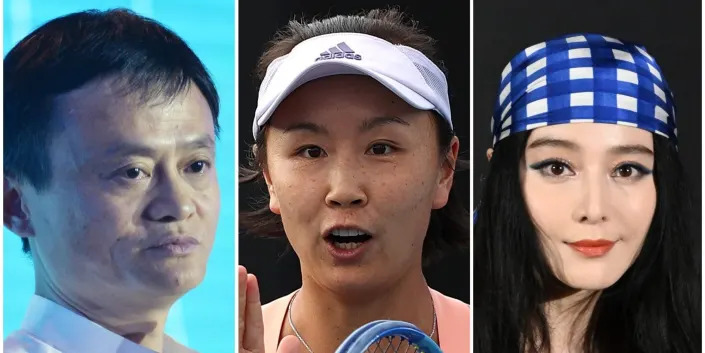
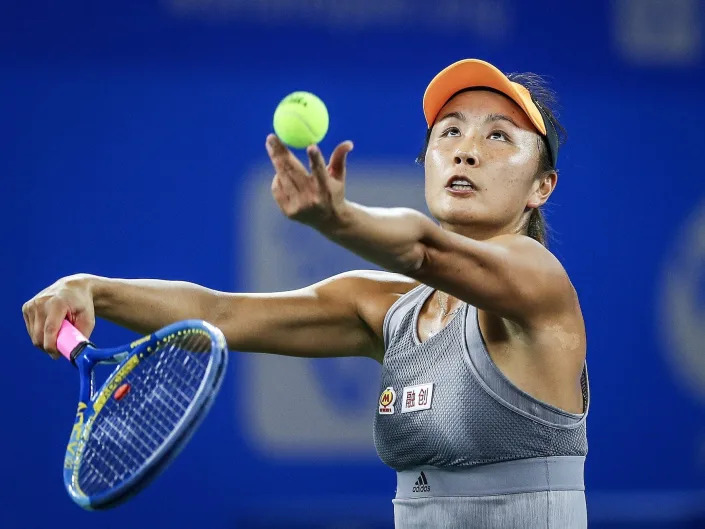
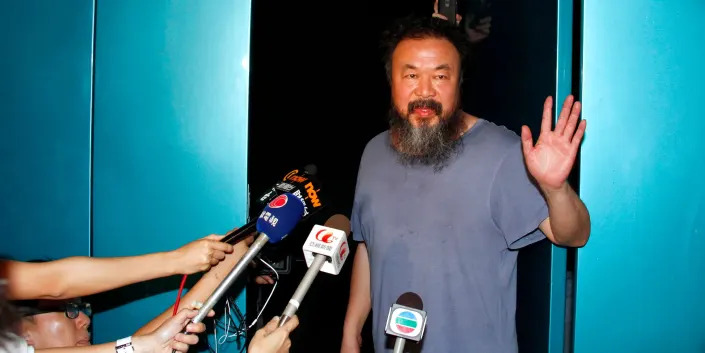
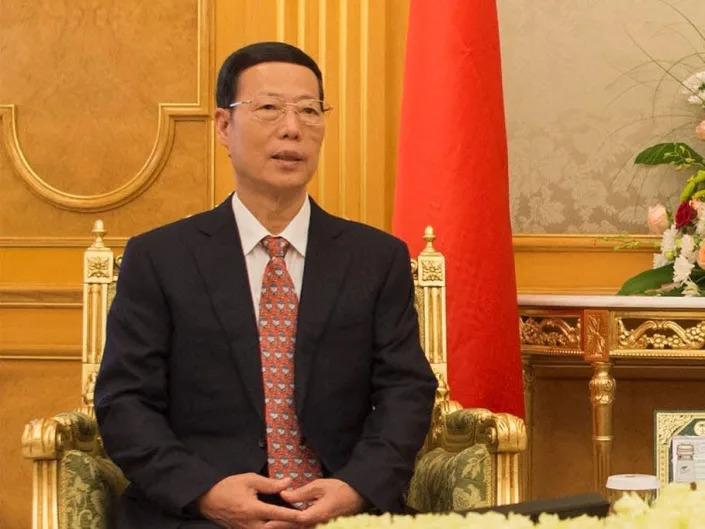
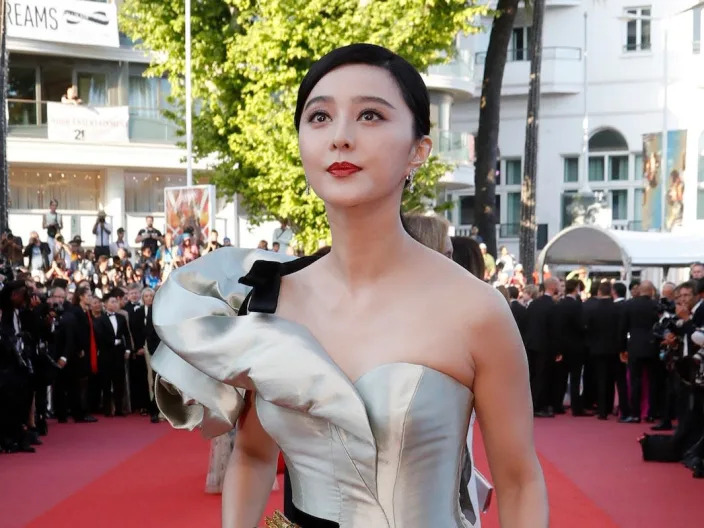
No comments:
Post a Comment